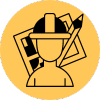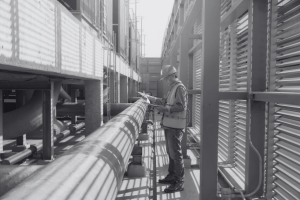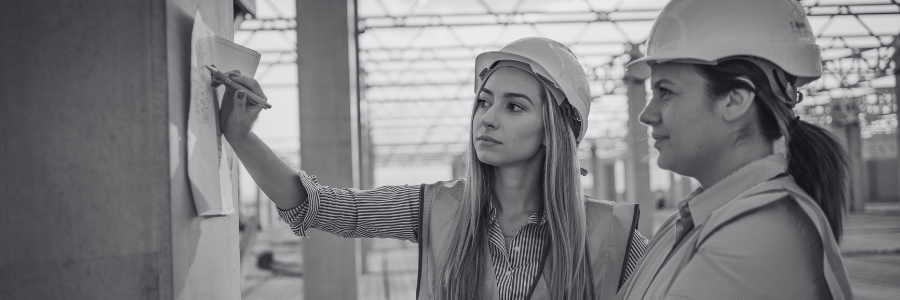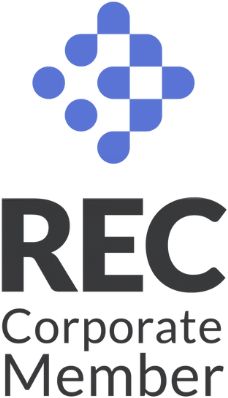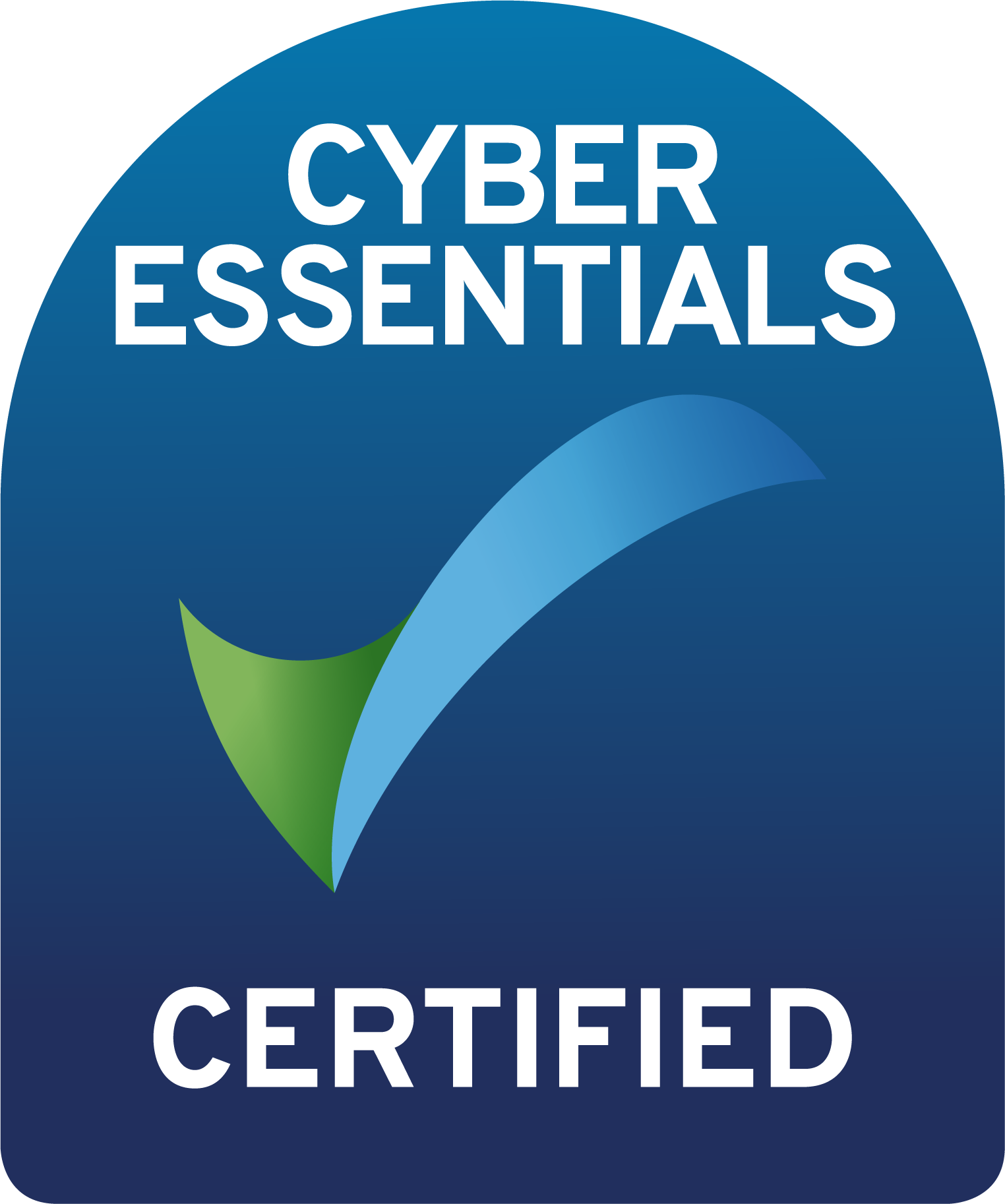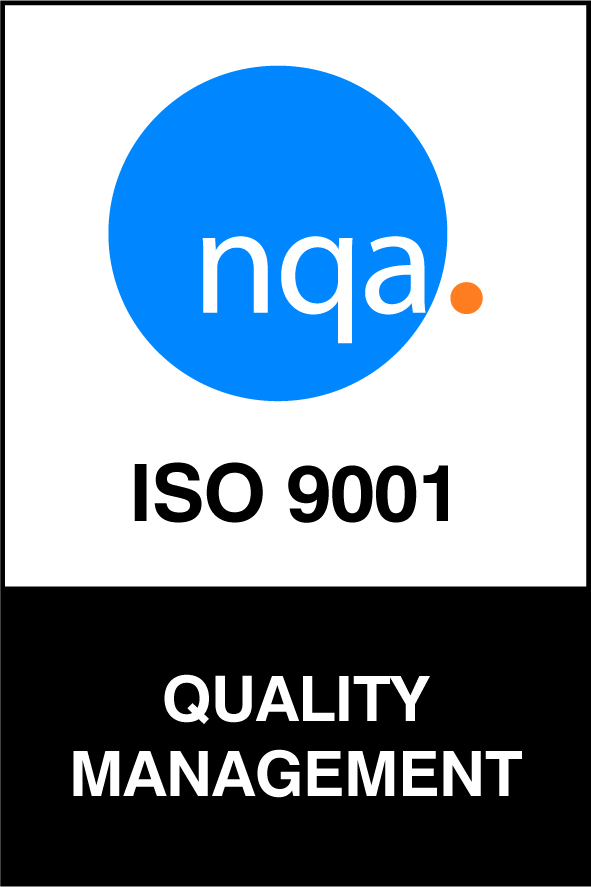Test Owner

In a competitive job market, staying ahead of architectural trends can significantly improve your chances of getting an interview for your dream job. It can also help you stand out amongst excellent candidates as it shows your passion for the role, and that you’re naturally willing to learn as much as you can. Here are five architectural trends to discuss on your CV and during interviews to help secure your dream role.
1. Highlight Your Expertise in Sustainable Design
Sustainability is more than a buzzword; it’s a fundamental and heavily discussed topic in the industry. As an architect, demonstrating a strong understanding of sustainable design principles can set you apart. Emphasise your current and future desired experience with eco-friendly materials, energy-efficient systems, and green building certifications like BREEAM. When applying for new roles, showcase projects where you implemented sustainable practices and explain how you contributed towards the success of the project. Employers are increasingly prioritising candidates who can contribute to their sustainability goals, making this trend currently a critical asset to own in your job search.
2. Showcase Your Experience with Smart Technologies
The integration of smart technologies into architectural design is rapidly expanding thanks to recent advancements in technology. From intelligent building systems to IoT (Internet of Things) solutions, understanding how to incorporate these technologies can significantly improve your employability. Highlight any experience you have with automated controls, or advanced building management systems in your portfolio as these can be great talking points for the interview. If firms are looking to integrate smart technologies into the business, having those skills or knowledge of the area will make you more desirable as a candidate.
3. Discuss Adaptive Reuse and Urban Regeneration
Adaptive reuse and urban regeneration are pivotal in modern architectural practices. As cities face increasing pressures for further sustainable development, the ability to transform and repurpose existing structures is highly valued. If you have worked on projects involving the renovation of historical buildings or the revitalisation of neglected urban areas, be sure to highlight these experiences on your CV or during your interview. Demonstrating your ability to navigate the complexities of adaptive reuse can position you as a candidate who is not only innovative, but also very practical.
4. Embrace the Rise of Remote and Hybrid Working Models
The shift towards remote and hybrid working models has also impacted the architecture industry. As a result, many firms have introduced new technologies so that their teams can hybrid work, including Revit. Showcase your ability to work effectively in remote settings, utilise BIM (Building Information Modelling) software, and collaborate across various digital platforms. Firms are increasingly looking for candidates who can thrive in flexible working environments and contribute and communicate effectively from any location.
5. Demonstrate Your Understanding of Changes In Design Trends Based On Environmental Factors
The COVID-19 pandemic has caused lasting changes in architectural design, including a heightened focus on health and general well-being. Design trends now emphasise better ventilation, adaptable spaces, and more attention to creating environments that support better mental and physical health. You should highlight any projects where you’ve incorporated these elements or have been involved in designing spaces that cater to the new health and safety standards.
Staying on top of architectural trends not only helps you stay relevant but also positions you as a forward-thinking professional in the industry. By highlighting your expertise in sustainability, smart technologies, adaptive reuse, remote work capabilities, and post-pandemic design, you can significantly enhance your CV and attract the attention of potential future employers. Use these trends to your advantage, and you’ll be well on your way to securing your dream role in the evolving industry of architecture.
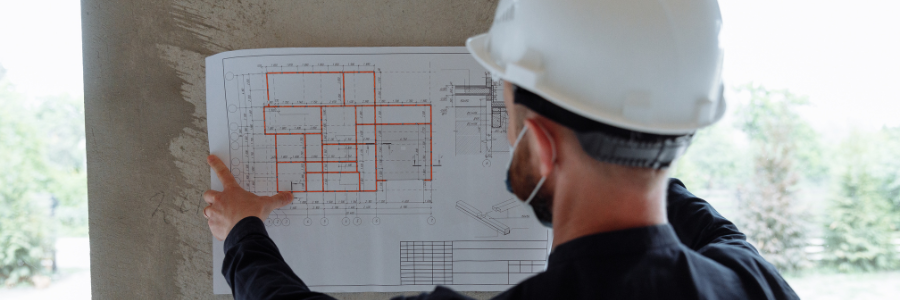
Securing a new role in architecture requires not only a fantastic portfolio but also the ability to present your skills and experience well during interviews. For architects looking to impress hiring managers, understanding how to articulate your expertise and demonstrate your value is crucial. In this blog, we will explore our top tips for presenting your skills and experience during your interview.
1. Prepare Your ‘Elevator Pitch’
Before diving into specific questions, be prepared with an ‘elevator pitch’ that summarises your professional background, key skills, and career goals. This brief introduction sets the tone for the interview and provides a snapshot of who you are as an architect. This should mostly be used when you are first asked to introduce yourself and will likely lead to further questions.
Example: "I’m an architect with over five years of experience in sustainable design and urban regeneration projects. My background includes working on various commercial and residential projects, where I’ve successfully implemented energy-efficient solutions and led design teams to deliver high-quality outcomes, including X building in Leeds. I’m particularly passionate about integrating innovative technologies to enhance building performance and user experience."
2. Articulate Your Design Process
Interviewers often seek to understand how you approach design challenges. Be prepared to discuss your design process in detail, including how you gather requirements, develop concepts, and address potential obstacles.
Common Question: "Can you walk us through your design process for a recent project?"
Example Response: "Certainly. For the [Project Name], I started by conducting extensive research to understand the client’s needs and the site’s context. I then developed several concept designs, focusing particularly on functionality and sustainability. After presenting these concepts to the client, I made the relevant changes and finalised the design. Throughout the project, I used Revit to create detailed models and collaborate with the engineering team to ensure that the design met all technical requirements and regulations. The outcome was a modern, energy-efficient building that exceeded the client’s expectations."
3. Discuss Your Technical Skills
Employers value technical proficiency with industry-standard tools such as Revit, AutoCAD, and BIM software. Highlighting your technical skills with concrete examples can help demonstrate your competency when working with these tools.
Common Question: "How do you use Revit in your projects?"
Example Response: "In my previous role, I used Revit extensively for creating 3D models and producing detailed construction documentation. For instance, on the [Project Name], I used Revit to coordinate with the structural and MEP teams, which helped identify potential clashes early in the design phase. This collaborative approach significantly reduced the number of revisions needed during construction and ensured a smooth project delivery, resulting in the plans being ready before the deadline."
4. Showcase Your Problem-Solving Abilities
Architecture projects often come with complex challenges that require innovative and creative solutions. Be ready to provide examples of how you’ve addressed such challenges and the impact of your solutions – we recommend preparing these examples in advance so you are not put on the spot during the interview.
Common Question: "Describe a challenging problem you encountered on a project and how you resolved it."
Example Response: "During the design phase of the [Project Name], we encountered an issue with the site’s drainage system, which threatened to delay the project. I organised a series of workshops with the engineering team to explore potential solutions. After evaluating various options, we implemented a modified drainage plan that integrated sustainable rainwater harvesting. This solution not only addressed the issue but also improved the building’s sustainability features, which was very well-received by the client."
5. Demonstrate Your Teamwork and Leadership Skills
Architectural projects often involve working closely with a diverse range of teams. Highlighting your ability to collaborate and lead effectively can be a significant advantage.
Common Question: "Can you provide an example of how you’ve worked with a team to achieve a project goal?"
Example Response: "On the [Project Name], I led a multidisciplinary team consisting of architects, engineers, and consultants. I scheduled regular meetings to ensure everyone was aligned on project goals and deadlines. By implementing a collaborative approach and using project management tools, we were able to streamline communication and address any issues promptly. This teamwork resulted in the successful completion of the project on schedule and within budget."
6. Prepare for Questions About Your Portfolio
Be ready to discuss specific projects from your portfolio. Interviewers may ask for details about your role, design decisions, and the project’s outcomes, particularly if your previous projects are similar to their future projects.
Common Question: "Can you elaborate on your role in the [specific project] showcased in your portfolio?"
Example Response: "In the [specific project], I was responsible for the overall design concept and coordination with the client. My role involved developing initial sketches, preparing detailed drawings using AutoCAD, and presenting design options to the client. I also collaborated with the construction team to ensure that the design was executed accurately. The project was completed successfully and received positive feedback for its innovative design and functional layout."
7. Interview the Interviewer
Towards the end of the interview, the hiring manager may ask you if you have any questions. Saying “No” to this prompt is arguably one of the worst things you can do as it shows you’re not thinking about the role, the future or the business. Here is a list of interview questions you could ask the hiring managers:
- “What does a typical day in the role look like?”
- “What would this role look like in X years?”
- “What types of projects will I be working on?”
- “What are the business’ plans for growth over the next X years?”
Presenting your skills and experience effectively in an architecture interview involves more than just answering questions; it’s about demonstrating your problem-solving abilities, technical expertise, and collaborative spirit. By preparing thoughtful responses to common interview questions, showcasing your design process, and highlighting your technical skills with strong examples, you can make a compelling case for why you’re the ideal candidate for the role. Approach each interview with confidence and use these strategies to effectively communicate your value and secure your next architectural opportunity.
4 Pioneers Who Shaped Structural Engineering
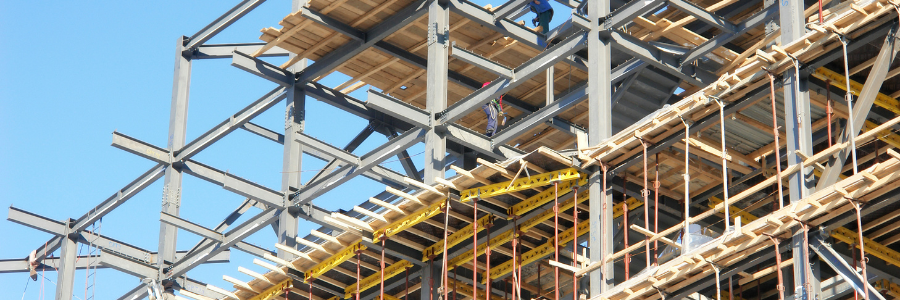
As a recruitment agency specializing in structural engineering, we understand the importance of recognizing the giants whose shoulders modern engineers stand upon. Today, we're highlighting four pioneers who revolutionized the field of structural engineering, paving the way for the impressive structures we see around us today.
1. Gustave Eiffel (1832-1923)
Best known for the iconic Eiffel Tower in Paris, Gustave Eiffel was a French civil engineer who made significant contributions to structural engineering. His innovative use of wrought iron in construction allowed for taller and more durable structures. Eiffel's work on the internal structure of the Statue of Liberty is another testament to his engineering prowess.
2. Fazlur Rahman Khan (1929-1982)
Often referred to as the "Einstein of structural engineering," Fazlur Khan revolutionized skyscraper design. His tube structural systems made it possible to build taller and more efficient buildings, including the Willis Tower (formerly Sears Tower) and the John Hancock Center in Chicago. Khan's innovations continue to influence modern skyscraper design.
3. Eugène Freyssinet (1879-1962)
Eugène Freyssinet was a French pioneer of prestressed concrete. This technique, which involves placing steel tendons under tension within the concrete, dramatically improved the strength and durability of concrete structures. Freyssinet's work laid the foundation for modern bridge design and construction.
4. Emily Warren Roebling (1843-1903)
While not formally trained as an engineer, Emily Warren Roebling played a crucial role in completing one of America's most iconic structures: the Brooklyn Bridge. When her husband, the chief engineer, fell ill, Emily stepped in to manage the project. Her dedication and self-taught engineering skills ensured the successful completion of this groundbreaking suspension bridge.
These pioneers pushed the boundaries of what was possible in structural engineering, inspiring generations of engineers to come. Their innovative thinking and problem-solving skills continue to be valuable traits in the field today, qualities we always look for in the talented structural engineers we place.

You've made the decision. Things aren't quite working out in your current role, whether it's the hours, the travel, the pay; whatever the reason, you know it's time for your next move. This happens to most of us, so you shouldn't feel nervous or guilty about your decision.
One question on your mind is likely to be 'Should I use a recruiter?' You can search the job boards and apply for relevant jobs yourself of course. Still, there are enormous benefits to using an experienced recruitment consultant who knows the Built Environment and the specific sector of it you work in.
9 Ways a Built Environment Recruiter Can Help You
Looking for your next career move can be daunting, especially if you've been in your current job for a long time. It can be tough to try something new or to find a role suitable for you.
As recruiters we'll have spoken with dozens of people in a similar situation to you during our careers, and just as importantly dozens of recruiting managers. We can help you understand what's a sensible approach, what financial packages are on offer and how to get the best role for you to suit your aspirations and current skill set.
As recruiters, we can help in many more ways:
• Market knowledge – we work exclusively in niche areas, whether that be architecture, building services, highways, civil & structural, geotechnical, surveying or construction, we know your discipline and area inside out. We know who the top companies are, who the best employers (and perhaps those who aren't) are, and whether they are looking or not. This can save you a lot of time.
• We can get your CV straight to the hiring manager and then chase them for feedback – this can be the difference between getting an interview or not and will also save you time filling out an application form for each company.
• Recruiters often know who's recruiting before the jobs have been advertised so they can put you forward before the wider job-seeking public. The Construction, Property & Consulting sector is a busy market and often it's easier for recruiting managers to ring a trusted recruiter than it is to write an advert, get it approved internally and wait for responses. We'll also ensure that your CV gets in front of the right person in the quickest possible time
• Choosing the right job to go for – no one likes wasting their time. You don't want to apply for or travel to interviews for jobs that aren't right for you. If you apply directly, you might not realise the fit isn't right until you've spent hours filling in application forms, or worse travelling the country to go to an interview. Recruiters can work with you to decide which roles are right (our live Built Environment jobs are here by the way).
• Interview preparation and coaching – you'll get advice on what to expect at the interview and which areas of your experience you might want to highlight. Your recruiter will help you through it and let you know what the company is looking for in potential employees.
• CV advice – we can help you structure your CV to ensure that your skills shine for a particular role or company. It will maximise your success!
• You may need an advocate – you might be looking at a sideways move, changing sector or relocating. You can communicate a certain amount in your CV and cover letter (we've got advice on that here...), but we can talk to the right people and say what you need to be heard.
• Awkward questions – the advice always suggests you should avoid questions around salary, holiday, sick pay, progression and so on. A significant benefit of working with a recruiter is that they have asked these questions already. They will know the nitty-gritty details of the package and, if not, they can ask these awkward questions impartially without any comeback on you.
• Advice on resigning and counter-offers – it's something you might not expect, but your current employer isn't necessarily going to let you go easily. We'll help you through that and say "no" in the right way and manage what can be a difficult period.
Calibre Search has been servicing the Construction, Property and Consulting industry since 2005 and places hundreds of engineers a year. To speak to an experienced consultant call 0113 234 6047 and our team will point you to the consultant best placed to help

Congratulations, you landed your dream role! Despite accepting the offer, you should still always be mindful of how you present yourself, especially during the first day of the job. In this blog, we will explain how you can make the best impression during your first day in the role.
Research, research, research
Yes, you may have already done plenty of research before the interview, but you should refresh your memory.
Areas to look at include:
• Project wins
• Good news stories
• New appointments
• Anything that you can drop into conversation to show you have been looking forward to coming on board.
Connect and Impress
Network strategically: Introduce yourself to colleagues you'll be working with and for.
Make a particular point of saying hello to the people who will be supporting you; they'll remember how you made them feel! We all struggle with remembering names on the quick office intro, but some memory hacks can help.
Ears Open, Mind Engaged
Practice active listening: in meetings or briefings take notes and ask insightful questions. This shows engagement and helps you retain important information about ongoing projects.
Be early but not too early
Set off with plenty of time and plan your route before your first day. You may have done that commute before but not at rush hour. You may be asked to come to the office a little later on the first day so make sure you respect that. The team want the time to set up for the day and prepare for your joining before you get there. 10 minutes early is usually a good time to aim for if there is a waiting area.

In our experience, mechanical, and electrical building services engineers can struggle with writing CVs because they often must balance two sets of skills: technical and transferrable. Finding the right balance can be difficult; you don't want to just focus on your technical skills, but how does one incorporate transferrable skills into the CV?
If you're a bit stuck or looking for inspiration for your CV, the following will help you create a focused document that will win you interviews.
1. Just how much information is too much?
You don't need to list every project/site that you have ever worked on with each company, but it's worth highlighting 2-3 in each sector. Make sure to include specifics about what you did and the software/equipment you used.
2. Think of the Hiring Manager
A good way to think about a CV is that the reader has a problem that they want you to solve. It's a nice problem as it is down to clients giving them business, but a problem, nonetheless. You've read the job description and done a bit of research about the company (you have, right?!) and so all you need to do is relate what you have done to what they will want to hear. Partially quoting the job description can help as it proves you have read and understand what they are looking for.
3. Include a personal profile
Cover letters are useful but are not always read, so a personal profile is a great way to communicate about you and your skills; It's effectively the small talk before a formal meeting. You'll want to avoid cliches and outdated phrases like "man management", but you will want to relate your past work history to your future career goals and the role you're applying for.
4. Be wary of time
If you've got 30 years in the industry behind you it's tempting to write about everything, but sadly a lot of that won't be that relatable to a potential employer today. Focus on the last 10 years with projects etc. that relate to the company or project you are applying for – the more recent, the better!
For the next 10 years summarise it, for example:
"Between 2000 and 2011 I worked for Aecom, WSP and Atkins as a Senior Engineer completing a mix of a refurb and new build schemes in the education, health and retail sectors." or "between 2000 and 2011 my work was mainly service and maintenance of electrical equipment for three large contractors covering retail and MOD environments".
5. Be honest
Employers are cynical when reading CVs and over-embellishment can be a real turn-off. If the role was junior or not industry related don't try to make it into something it wasn't. Don't forget the hiring manager started their career too and knows that no one is responsible for anything too major in the first year of their first post!
Similarly, if your work history is sporadic don't try to hide it as a well-written CV can be your advocate. Include the months in your periods of employment, not just the years, as the hiring manager may think you are hiding something even when you're not. If you have been unemployed for a period, were you doing something directly relevant or transferable to an employer? If so, make sure to include it!
6. Qualify it!
You'll also include your qualifications and be sure to say when you got them and where from. For maintenance roles, clients can be extremely particular about qualifications as there are so many, so detail as much as you can. Alternatively, if you have completed a dissertation or major project, be sure to include the title and a couple of lines about it as it's a great conversation point in the interview. In the same way that time isn't always your friend with employers, it isn't with qualifications. For instance, a CLAIT from 1993 is of limited value in the 2020s, so limit any accreditations or short courses you've completed to those done in the last 10 years.
Finally, if you have a professional membership such as MCIBSE/an Electrical apprenticeship, or are working towards one, say so and how close you are to achieving it. You'll be missing out if you don't.
In conclusion, writing a balanced CV can be tough, but with these useful tips mentioned, you should be able to smash it and land an interview for your dream job.
Three Hidden Pioneers of M&E Engineering
There are many engineering greats that everyone knows; the work of people like Thomas Edison and Nikola Tesla is famous and deservedly so. Have you ever wondered about some lesser-known people who have quietly had a profound effect on building services today?
Hertha Marks Ayrton
First, we have Hertha Marks Ayrton (1854-1923), a British engineer and mathematician. Her groundbreaking work on electric arcs improved the efficiency of lighting systems and paved the way for modern arc welding techniques. Her research influenced the development of more efficient lighting solutions, and it is only just being superseded by LED technology.
Willis Carrier
Willis Carrier (1876-1950) is often overlooked despite being considered by some as the father of modern HVAC systems. His early work focused on controlling humidity in printing plants which led to strides being made in the field of air-conditioning. In contrast, his innovations in climate control have influenced countless engineers and architects.
Edith Clarke
The first woman to earn an electrical engineering degree from MIT was Edith Clarke (1883-1959). Her development of the “Clarke transformation” simplified power system calculations, making it easier to analyse and design complex electrical networks. This mathematical tool is still used in power system analysis and has been crucial in developing smart grid technologies.
If there are any unsung heroes that you would like us to discuss, please let us know who and why.
You've made the decision. Things aren't working out in your job, whether it's your boss, the hours, the pay; whatever the reason, you know it's time for your next move. One question on your mind is likely, 'Should I use a recruiter?' While you can search job boards and apply for relevant jobs yourself, there are enormous benefits to using an experienced FM recruiter. If you are feeling a bit overwhelmed with your job search, using an FM-focused recruiter can help make the process smoother and easier.
9 Ways a Recruiter Can Help You
Looking for your next Facilities Management career move can be daunting, especially if you've been in your current role for a long time. Recruiters who know the FM market interact with dozens of individuals like you every week, and just as importantly, they communicate with dozens of hiring managers. They can help you understand what's a sensible approach, what financial packages are on offer, and how to get the best role for you. Here's how a recruiter can help:
1. Market Knowledge
Specialist recruiters in the FM sector know the market like the back of their hand. They are familiar with the top companies, the best employers, and the hiring landscape. This knowledge can save you a lot of time.
2. Direct Access to Hiring Managers
A recruiter who knows the market and relevant companies can get your CV directly to hiring managers and follow up for feedback. This can be the difference between getting an interview or not and saves you the time of filling out application forms for each company.
3. Early Access to Job Opportunities
Recruiters often know who's hiring before jobs are advertised. They can put you forward before the wider job-seeking public even knows about the opening. In a busy market like Facilities Management, this can be crucial and could result in you getting your dream role faster.
4. Matching You with the Right Jobs
No one likes wasting time. Recruiters can help you avoid applying for or interviewing for jobs that aren't right for you. They can identify which roles are a good fit, saving you hours of filling out applications or travelling to unsuitable interviews. This means you can spend your time more effectively.
5. Interview Preparation and Coaching
Recruiters provide advice on what to expect in interviews and highlight areas of your experience to focus on. They will guide you through the process and let you know what the company is looking for in potential employees.
6. CV Advice
Recruiters know how to structure a CV to ensure it is seen by and appeals to hiring managers. This means information can be edited on your CV to make sure you're in the best possible place to apply for roles.
7. Negotiating the Right Package
It's not always about the basic salary. With mobile FM engineer roles, factors like on-call rates, travel time, overtime, and pension contributions are important. Recruiters can discuss the pros and cons of different offers and negotiate on your behalf, knowing how much to ask for without risking the offer.
8. Handling Awkward Questions
Interview advice often suggests avoiding questions about salary, holidays, sick pay, and travel time. Recruiters have already asked these questions and know the details of the package, which they can discuss without any awkwardness for you.
9. Advice on Resigning and Counteroffers
Leaving your current role and transitioning to a new position is a big step. Recruiters can advise on how and when to hand in your notice and what to do if you receive a counteroffer, helping you avoid burning bridges in what can be considered a small industry.
Calibre Search has been serving the Facilities Management industry for over 15 years, placing hundreds of engineers each year. To speak to an experienced consultant, call John Cassidy on 0113 234 6047, email him at john.cassidy@calibresearch.co.uk, or check out our FM jobs page here.

Congratulations, you have an interview for your dream FM role! Naturally, you will be excited, but also nervous as you will not know what to expect until you are in the interview. The unknown can be scary, but we have compiled a list of some of the most common interview questions and how you can answer them, so you can be as prepared for your interview as possible.
1 – Tell us a little bit about you
This type of question is commonly asked at the beginning of the interview as it’s a great way for the hiring managers to get to know you and get an idea of your personality. You should introduce yourself, and give a brief history of your employment, key achievements, and qualifications.
For example: “I am a refrigeration engineer with eight years of experience working in commercial environments and two years working in domestic environments. I currently have a F-Gas certificate and I have some experience working with CO2 refrigerants. I won Refrigeration Engineer of The Year in 2023 and have proudly worked on many large projects.”
2 – Why did you apply for this role?
For this question, you need to discuss both the role and the business. You can discuss how the role can help you develop new skills and improve existing skills, or why it seems like the perfect next step in your career. You should then explain why the company seems suitable; so you can explain any awards, notable figureheads in the business, company history and coverage in the news.
For example: “I applied for this role as I wanted to start working with supermarkets as an electrician. I have briefly worked in that environment and heavily enjoyed it, so it is the right next step for my career. I want to work with you specifically because you have a great company culture as seen by your awards, and you are one of the leading brands in the industry.”
3 – Why do you want to leave your current role?
Regardless of the situation, make sure that you only answer the question with a positive answer about your employer. You should instead focus on what new skills you want to learn, what you hope to achieve and what attracted you to the role you applied for.
For example: “In my current role, I am working with local public venues such as restaurants and pubs, but I would like to transition to work with supermarkets instead as I would like to specialise as a supermarket refrigeration engineer."
4 – What are your goals for the future?
This question is commonly asked by hiring managers to see whether your career goals align with the business. Even if you do not plan to stay with the company for decades, you should still talk about how the role and the business are ideal for your next career steps.
For example: “I want to gain more experience working in a wider variety of environments. I currently have some experience, but I know that this business can help me grow and develop within my dream career. I hope in the next 6 years to be a senior air conditioning engineer.”
5 - Can you tell me a time when you overcame an issue?
This question gets you to think about any issues you have had to manage and solve, ideally relating to the role. Avoid saying “we” and focus on saying “I” during this question. As it can be tough to structure an answer to this question, we highly recommend using the STAR method:
S – Situation – what happened
T – Task – the task you were given
A – Action – how you responded
R – Result – what happened after you took the action
For example: “A few members of staff were taking longer than average to complete tasks, which meant fewer jobs could be completed over a week. As someone who was hitting the time estimates, I wanted to make sure that the rest of the team could also get all their tasks done in time. I got permission to shadow some members of staff on their jobs to see if there were any obvious issues. After realising that some of the staff didn’t know how to accurately use the tools, I spent half a day a week later teaching the staff again how to use each tool. After this training session, each employee hit their time estimates for the month.”
This structure may not always apply, but having a structured answer will help narrate your story and experience, making you come across better to the hiring managers.
6 – What are your salary expectations?
Even though it would be great to make lots of money, be realistic with what salary you expect – you should look at salary data for the industry, location, and experience. You can suggest a range of salaries, especially when trying to negotiate for additional benefits such as overtime.
“Considering current industry salaries and my experience, I would want a salary of around £43,000. Although, I would be happy to take £41,000 if I can have the benefit of paid overtime."
7 – Do you have any questions for us?
When asked this question, it is essential to have a question or two prepared. This can be something specific to the role, or it can be a more general question. Here are a few examples of questions you can ask:
·What does the next 5 years look like in the business?
·What would the career path look like for someone coming into the role?
·What does a typical day look like in this role?
·How would you describe the company's culture?
·What are the organisation’s key values?
·What are the next steps in the hiring process?
If you want some advice on FM interviews, we can help!
Call us: 0333 323 0733
Email us: info@calibresearch.co.uk

Despite many people finding cover letters difficult to write, many hiring managers use them to get an idea of your personality and capabilities before they speak to you. They can help employers decide who they want to meet, or not, as a well-written cover letter can act as an extension of your CV.
In this guide, we will cover the 4 steps to creating a cover letter for your dream job, including some top tips to help you stand out.
Preparing To Write Your Cover Letter
Do a bit of research that you can use to personalise your cover letter. What does the company you are applying for specialise in? Do you know who will read your details; their LinkedIn profile could give you a clue about topics to include.
Looking at their website, blogs, news stories and their social media presence will give you valuable insight that you can use in your cover letter to strengthen your case.
Introduction
This is almost the hardest bit!
“Dear Sir/Madam” is always ideal if you don’t know who will be reading your cover letter.
After that, it’s good to mention the job title, where you saw the advert and what you can bring to the table.
“I have seen your advert for an Electrical Engineer on the TotalJobs website and I have 15 years of experience.” Is not a great example as it is straight to the point and not intriguing.
If you’ve researched the company and know that they have Asda as a client; “I have seen your advert for an Electrical Engineer on the TotalJobs website and I’m keen to be considered as I’ve been working on the Sainsbury’s portfolio” will give you an edge over everyone else as you have done your research and have relevant experience and expertise.
Main Content
The main content for your cover letter is where you think about your experience and relate it to the key points in the advert. The most straightforward way is to use bullet points to list the key criteria listed in the advert and how you are suitable for the role.
For example, if you are an HVAC engineer, you may want to discuss big projects you have previously worked on and which skills you used to complete the project that match those mentioned in the advert. You should also talk about your soft skills and how you can apply them to have a positive impact in a team or within the company culture but try to avoid using cliché phrases such as “I am a team player”.
If you have gaps in your employment history, you can also use this as an opportunity to discuss what skills you learned during the break.
Conclusion
After you have completed the main content, you should write one last paragraph rounding off why you would be a good fit for the role. You don’t have to repeat everything you have previously mentioned but just reiterate any important parts.
Finally, you should sign off the letter with ‘Yours sincerely’ if you know the hiring manager’s name, or ‘Yours faithfully’ if you don’t and ensure that your contact details are on there.
Top Tips For Writing A Cover Letter
- Make sure you use a formal tone throughout your cover letter
- Create a new cover letter for every role you apply for, or at the very least have one for each type of role you are applying for.
- Use the same font and font size as your CV
- Check your spelling and grammar before sending it – you should ideally get another person to check it as they can give advice
- Keep a copy of your cover letter as you may get asked questions about the contents in the interview
- Research the company and ensure any information about them is correct
- Do not just recite your CV
- Avoid cliché and vague phrases
- Aim to write half a side of A4 paper, with one page being the max
Call us on 0113 234 6047 if you want to know more about cover letters or find out how we can help you secure the best jobs in your field.







